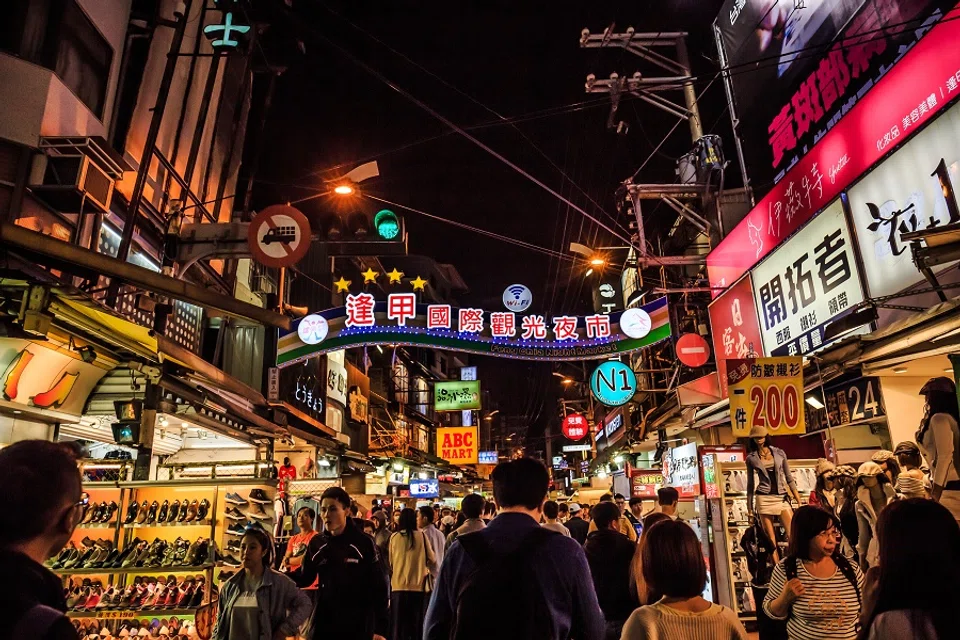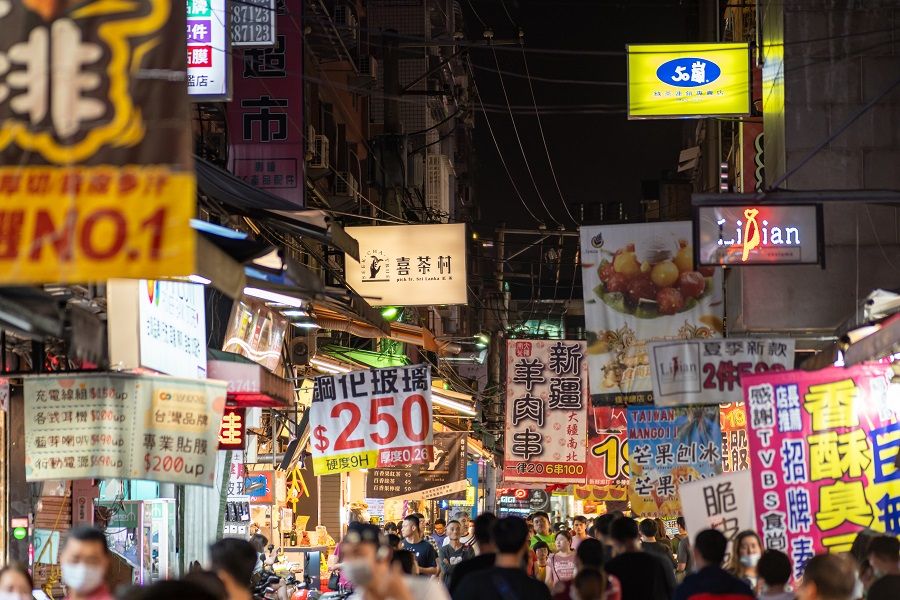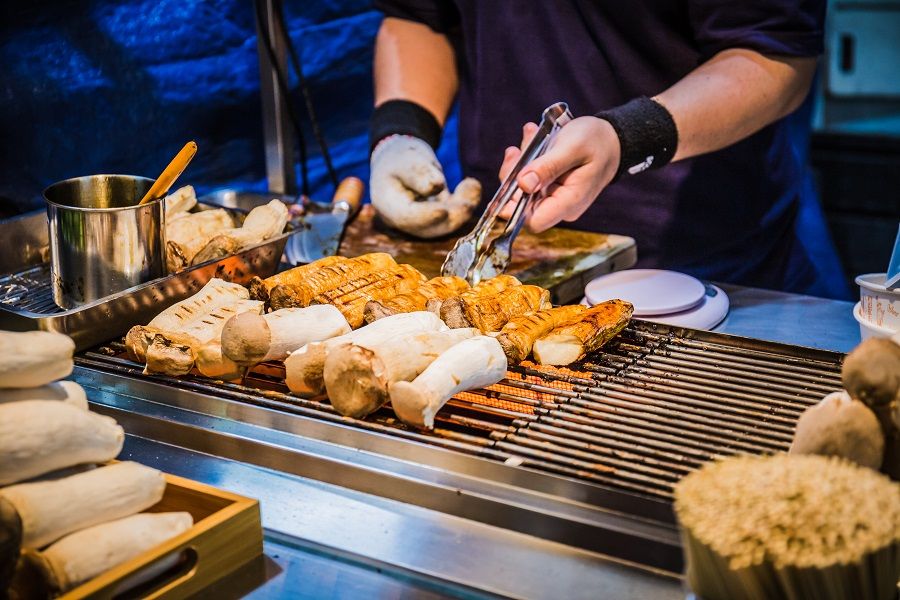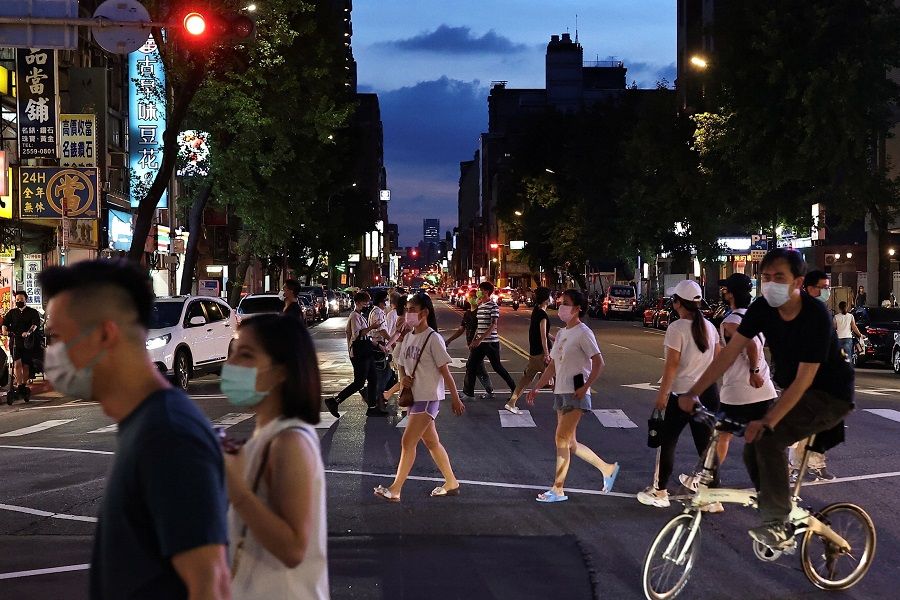Cultural historian: How I fled for my life in Taiwan's Feng Chia Night Market

Once, when I went to Taichung, Taiwan to give a lecture at Feng Chia University, I stayed in the Feng Chia commercial district. My friends who are not from Taiwan were all so envious, telling me excitedly that Feng Chia Night Market is Taiwan's biggest and most popular night market. It's small bites galore there; if it flies in the sky, runs on land or swims in the sea, there'd be some kind of snack made from it. In short, it has everything you can or can't think of, and everything you can or can't eat.
My friends told me that their grown-up kids would make a beeline for the market whenever they were in Taiwan. When they returned, they would rave about their experience, saying how everything was in big portions, cheap and good.
Psyched for some night market fieldwork
They said as long as I had NT$1,000 (approximately HK$200) in hand, I'd know what it means "to have eyes that are bigger than one's stomach" (眼大肚小) and understand the younger generation's parlance of having a great meal, that is, to be so stuffed to the point of throwing up, and to still feel bloated after strolling around for one to two hours.
Now that I'm past 60 years of age, I told my friends that it's best not to overeat or behave like the gluttonous Romans who reportedly indulged in "alcohol pools and meat forests" (肉林酒池), eating after vomiting. I told them that I wouldn't do that but I would keep an open mind and visit the night market for the experience. Perhaps I might even gain some insights to help Taiwan's education authorities design a general education module on the night market.
After much prodding by friends from around the world (including those in New York), I finally decided to visit the night market on a Saturday night and join in the fun of the post-90s generation. I told myself I was only going to have a look and relive the memories I had at roadside stalls when I was a teenager.
Actually, it's no big deal to visit a night market, but I went to the extent of digging up the words of Song dynasty Neo-Confucian philosopher Cheng Hao just to justify my trip: "People do not understand the joys of my heart and think that I am merely indulging in the ways of the young."
No! I was not indulging in idleness and entertainment. I merely believed in the phrase "the more the merrier", and wanted to observe the ways of society, and understand the minds of the younger generation. I went because it was my duty as a teacher to understand the way things work and gain wisdom from it.

Heaving with life and activity
Though I was still a distance away from the night market, I could already see throngs of people, public buses, small vehicles and motorcycles ahead of me. People and vehicles were literally fighting for space, just like in the movie Transformers where humans and cars walked the streets. I wondered why there haven't been any road accidents. Could it be that those buses were from outer space and were observing human behaviour like me?
Crowds burst forth like water from a dam from the street into the alleyways and back again. It resembled the seasonal migration movement of salmon, all fighting to swim upstream and scrambling to the rivers to spawn. It was also a bit like baby sea turtles breaking out of their shells, squeezing their bodies out of the sand and dashing towards the crashing waves of the ocean.
Food stalls lined the alleyways and price boards were prominently displayed. A bowl of minced pork rice cost NT$35, a plate of steamed dumplings cost NT$45, fried chicken cost NT$40, Japanese ramen cost NT$70, and beef noodle soup cost NT$100. Converting them into Hong Kong dollars, the prices averaged HK$10 to HK$20. No wonder everyone said that the food was extremely affordable.
'Big sausage wrap small sausage'
As I walked on, I saw just how ingenious the stalls were in promoting novelty dishes such as black tea stinky tofu, "fried chicken from the star", "big sausage wrap small sausage" (大肠包小肠), Squidto (黄金贼, deep fried giant squid stuffed with seafood baked rice), Hungarian kurtos (chimney cakes), Minglun pancakes, "lazy prawns" (deshelled prawns), and so on. It seemed as if all these were the innovative inventions of the night market.

There were also these more common street eats: grilled chicken, fried chicken, papaya milk, pepper bun, grilled clams, octopus balls, sweet potato balls, omelette, rice-stuffed chicken, chicken feet jelly, fried crab, grilled cuttlefish, grilled scallop, grilled Thai prawn, grilled corn, bubble tea, pineapple salad... I had no idea if they were franchises or authentic, original, one-of-a-kind stalls. I only knew that I was overwhelmed and confused.
Onward, march
I continued walking and found myself in the middle of the crowd. Everyone walked chest to back like soldiers in enemy territory - people could only move forward and not turn back. In the crowd, I could hear people speaking the standard Beijing dialect, Cantonese and Sichuanese dialects. They were probably tourists from Hong Kong and the mainland. And then there was a large group of people noisily chatting away in pure gibberish to me. Maybe they were a tour group from Vietnam or a certain Southeast Asian country. The whole street was in utter chaos. It felt like a temple fair or a ritual to greet the gods. In the midst of it all, I was in a daze.
I forgot how far I went, like the fisherman from Wuling who stumbled into the Peach Blossom Spring. After looking left and right, all I could see was a hazy fog of fried chicken, grilled cuttlefish, bubble tea, and papaya milk - I was like the fisherman who lost his way and never found the way back to the Peach Blossom Spring again.

I was trapped in the crowd for nearly an hour before I saw a dimly lit alleyway empty of food stalls. I quickly dashed out and finally escaped. After I made my way out of the alley, I was again greeted by cars and a large crowd on the other side of the road. I was getting dizzy and lost all sense of direction. I could only grab hold of a passerby who looked like a university student and asked for clear directions back to my hotel.
I spent two and a half hours walking around the night market and was completely exhausted. My friends asked, "So what did you eat?"
"Nothing," I replied. "I was busy fleeing for my life!"
This article was first published in Chinese on United Daily News as "逢甲夜市".
Related: East Asian literati, Korean rice wine and writhing octopus tentacles | Taiwan's nostalgic flavours, the glitterati and the kamikaze | Above Michelin: These professors would rather have Hakka pork belly with preserved mustard | Beijing's instant-boiled mutton and sweet memories of childhood days in Taiwan
